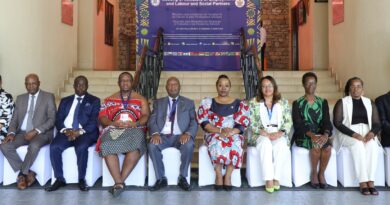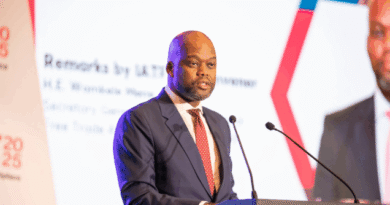Zambia and DRC Urged to Resolve Border Issues to Protect Trade
Economic experts are calling for Zambia and the Democratic Republic of Congo (DRC) to hold urgent talks to protect their trade relationship, following recent border tensions.
The closure of the border, announced by Zambia’s Commerce Minister, Hon. Chipoka Mulenga, came after protests over import activities and has raised concerns about the impact on both countries’ economies.
Kelvin Chisanga, an economic expert, highlighted the need for quick action to resolve these issues, warning that a prolonged closure could harm trade and investment between Zambia and the DRC.
He emphasized that the two countries have developed strong economic ties, especially in trade, and that these ties are crucial for their economies.
“The trade between Zambia and the DRC has grown over the years, and it’s important for both countries to address these concerns through discussions,” Mr. Chisanga said. “This will help protect the economic benefits they gain from their trade relationship.”
Mr. Chisanga noted that the border closure could disrupt the flow of goods and services, which are important for Zambia’s economy.
He also mentioned that the DRC is a key market for Zambian exports, especially in the mining sector, and that any long-term closure could cause Zambia to lose this important market.
“The DRC is a major market for Zambia’s goods, and it’s important that we don’t lose our place in this market,” Mr. Chisanga explained. “The sooner we resolve these issues, the better it will be for both countries.”
Mr. Chisanga urged both Zambia and the DRC to prioritize talks to resolve the border issues quickly, stressing that cooperation is key to maintaining the strong trade relationship between the two nations.
He also called on the Zambian government to act swiftly to ensure the country’s economy does not suffer further.
In conclusion, Chisanga emphasized that resolving the border issues is crucial for both Zambia and the DRC to continue benefiting from their trade relationship, and that working together is the best way to protect their economic interests.



